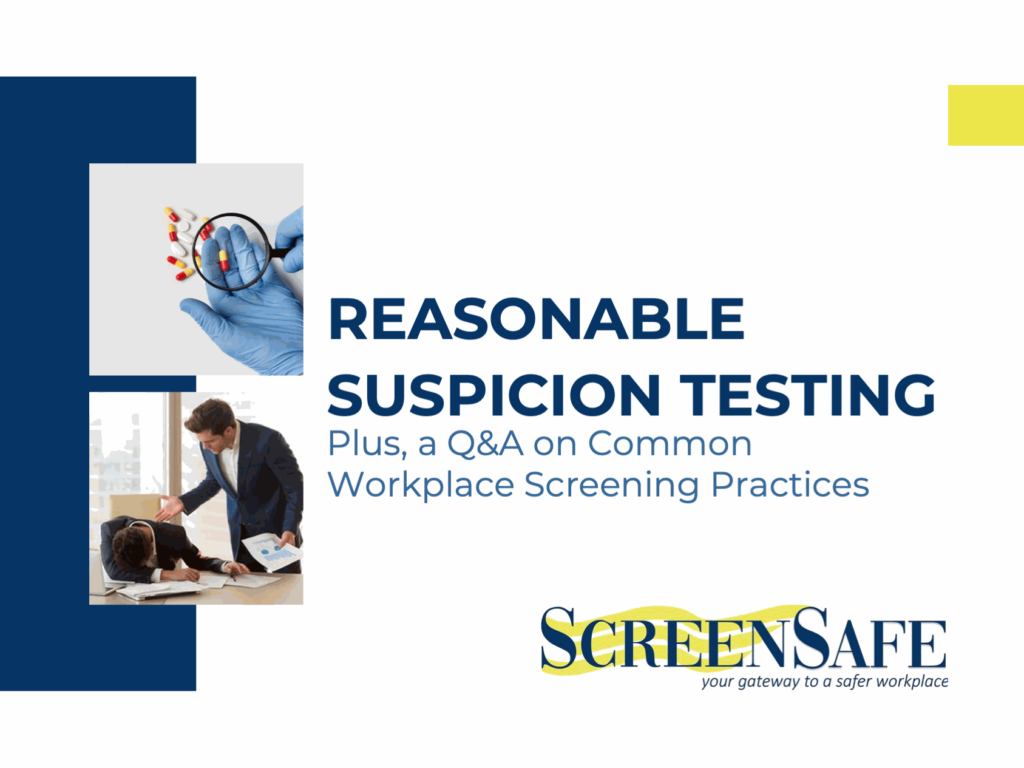
Substance abuse in the workplace is a problem with negative consequences for employees and employers. Most people avoid having drug or alcohol use affect their work time and performance, but some employees struggle to keep their substance use from affecting their employment.
How can employers address a current employee that they suspect has a problem? Active intervention by an attentive supervisor or manager, which may result in “reasonable suspicion” testing and proactive promotion of the employer’s assistance program, are two strategies that may help.
Reasonable suspicion is a legal standard used in workplace drug testing that requires objective and specific evidence that an employee seems to be under the influence of alcohol or drugs while on the job.
In our upcoming Reasonable Suspicion training, we will cover topics such as;
· The signs and symptoms of drug and alcohol misuse and abuse,
· The importance of objective and factual documentation,
· Strategies and approaches to successful interventions and
· Essential procedures and protocols regarding reasonable suspicion testing.
Reasonable suspicion testing is emotionally and operationally challenging for the manager who must request a test and for the employee subject to that request. Policies, procedures, and protocols should be clear, concise, and actively communicated to mitigate the strain.
